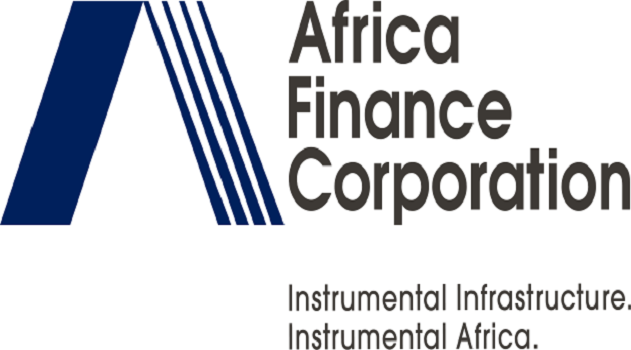E-Financial
Moody’s Affirms AFC’s A3 Rating with a Change from Negative to Stable Outlook

Africa Finance Corporation (AFC), the continent’s leading infrastructure solutions provider, today announced that it has received an uplift to its credit ratings outlook from Moody’s Investors Service, with the assignment of a “stable” outlook.

This decision further solidifies AFC’s position as one of the highest investment-grade African institutions, with Moody’s affirming the Corporation’s long-term issuer and senior unsecured ratings at A3, as well as AFC’s short-term issuer rating at P-2.
“Notwithstanding increased country risk in several of AFC’s countries of operation over the past year, asset performance has proven resilient amid effective credit protections,” Moody’s analysts stated in its latest report.
“The stable outlook also reflects management’s governance track record and early intervention capacity to mitigate materializing risks at an early stage.”
Moody’s A3 rating affirmation reflects AFC’s adherence to its prudential guidelines to safeguard the Corporation’s intrinsic financial strength based on solid capital adequacy and high-quality liquidity buffers.
In FY2023, the Corporation recorded outstanding financial performance with Capital Adequacy Ratio increased to 34.5% from 34.3% in 2022 and Cost-to-Income Ratio improved to 19.6%, from 22.7% in 2022.
Additionally, the Corporation recorded Liquidity Coverage Ratios (LCR) of 161% and 143% under normal circumstances and a stress scenario respectively, significantly higher than the Corporation’s LCR requirement of greater than 100% in both scenarios.
The decision by Moody’s is crucial for AFC to continue leveraging its top-tier credit ratings to achieve among the lowest borrowing costs of any institution in Africa, for transformational infrastructure projects in power, natural resources, transport, and technology that drive rapid industrialisation and job creation on the continent.
Landmark initiatives include Djibouti’s first wind farm, with AFC as lead developer advancing plans to become the first African country wholly reliant on renewable sources for energy, and the Lobito Corridor rail project, with AFC again as lead developer working alongside the US, European Union and governments of Angola, DRC and Zambia to mobilise industry and connect the Atlantic and Indian oceans.
“Amidst the current challenging global macroeconomic and financial conditions, we are pleased to receive such strong endorsement from Moody’s, a key lever in our access to global capital markets,” Samaila Zubairu, President and CEO of AFC, said “It reinforces our position as the resilient and reliable partner for a more prosperous African future and an indispensable ally in mobilising urgently needed capital to build the infrastructure that integrates Africa and enables its industrialisation.”
“The change in outlook to stable from negative is driven by our expectation that AFC will be able to maintain astable, if not improving leverage ratio and that the asset performance track record will be preserved.” Moody’s analysts said, commending AFC. “The improved leverage outlook reflects the Corporation’s continued equity raising strategy.
The Corporation exceeded its $1 billion target in 2019-23 and aims to raise a similar amount during 2024-28. Moreover, the corporation lowered its dividend payout ratio starting 2023 which will help retain a higher share of earnings and grow the capital base organically in the future,” they reported.
In the face of uncertainty in the global financial landscape, AFC successfully maintains access to the global capital markets, a testament to the confidence that investors place in the Corporation’s robust credit risk profile and it’s growing global appeal.
This year, AFC has completed several pivotal funding transactions including its largest ever debt facility, a US$1.16 billion syndicated loan, attracting new lenders from the Middle East, Europe, and Asia.
E-Financial
NDIC Says No Customer Loses Deposits in Failed Banks

Nigeria Insurance Deposit Corporation (NDIC) has guaranteed customers of insured commercial banks prompt recovery of their deposits in the event of risk liability or liquidation.

In addition, the corporation assured depositors of its statutory mandate, which includes supervising banks for risk assessment, ensuring ethical standards, and enhancing financial stability in the country.
Mrs Emily Osuji, executive director, Corporate Services, NDIC, gave the assurance during a Stakeholders Town Hall Meeting on customer protection regarding bank charges and deposits in Kano.
Mrs Osuji posited that the NDIC has, in recent times, demonstrated a strong commitment to protecting the hard-earned savings of Nigerians and sustaining confidence in the banking system.
She cited the cases of defunct Heritage Bank Limited, Union Homes Plc and Aso Savings and Loans Plc, where depositors received their deposits promptly after meeting the relevant requirements.
The NDIC boss, however, reminded customers to link their Bank Verification Number (BVN) as a unique identifier to locate their alternate accounts, where their claims will be transferred.
The executive director affirmed that NDIC has expanded coverage to protect about 99 per cent of depositors in Nigeria, a deliberate policy aimed at protecting small savers, promoting financial inclusion, and enhancing trust in the banking sector.
She said, “The corporation fulfils its role through its core mandates of deposit guarantee, bank supervision, distress resolution and bank liquidation, all of which are geared towards protecting the hard-earned savings of Nigerians and sustaining confidence in the banking system.
“Our strapline, ‘Protecting your bank deposits!’, is more than mere words for us. We stand by this statement as a firm commitment to our mandate of ensuring that depositors have access to their hard-earned savings in the event of bank failure.
“This is a critical responsibility that we do not take lightly. This is especially so in times of financial uncertainty and distress, with the NDIC standing as a pillar of safety and reassurance for depositors, particularly the most vulnerable.”
Speaking on the concept of stakeholder engagement, Hawwau Gambo, head of Communication and Public Affairs, said the corporation was compelled to provide clarity, build trust and strengthen depositor confidence amid misconceptions.
Gambo noted that the recent revocation of the operating licences of some banks by the Central Bank of Nigeria, (CBN) and the current public discourse on banks’ recapitalisation efforts have reinforced the need for sustained stakeholder engagement.
She reminded that sustained awareness is pertinent to dust, given already heightened public interest and featured public confidence in the financial institutions.
“NDIC’s last Public Awareness Survey highlighted the need to enhance interpersonal communication channels to improve public understanding of deposit insurance. It is against this backdrop that the Stakeholders’ Town Hall Meetings were conceived as a structured, interactive platform for dialogue, education and feedback,” Gambo noted.
E-Financial
CBN Expresses Concern Over Foreign Investments in Nigeria Fintechs

The Central Bank of Nigeria in its 2025 Fintech Policy Insight Report, has raised concern over Nigeria’s fintech sector heavily dependent on foreign investment, exposing it to swings in global markets.

The report said the sector has shown resilience despite global economic pressures, but warned that reliance on external capital leaves it vulnerable to market fluctuations.
It would be recalled that startups in the country raised $520m in equity funding in 2024, down from about $747m in 2019, when Nigeria captured roughly 37 per cent of all African startup investment.
This performance, amid significant global macroeconomic gyrations, underscores Nigeria’s position as a key hub for financial innovation. The sharp rise in interest rates in advanced economies during 2022 contributed to a slowdown in venture capital funding.
“These dynamics highlight the importance of developing domestic funding avenues, such as leveraging Nigeria’s capital markets, to reduce currency risk and sustain fintech growth,” the apex bank stated.
Olayemi Cardoso, CBN Governor, said Nigeria is undergoing a rapid and significant financial evolution. Over the past decade, the nation’s fintech landscape has grown from a handful of startups into one of Africa’s most vibrant innovation ecosystems.
“Even amid global economic headwinds, Nigerian fintech firms continued to attract investment and drive change. Today, with improved stability of our currency and domestic economy, it is clearer than ever that financial innovation can advance inclusion at scale,” the executive commented on the report.
In addition to funding, the central bank underscored Nigeria’s continued leadership in digital financial infrastructure. More than 25 per cent of all electronic transactions in Africa’s most populous nation are processed via real-time payment channels, with close to 11 billion transactions processed in 2024, up from five billion in 2022. The report described Nigeria’s instant payments platform, NIBSS NIP, as among the most mature and widely adopted globally.
The report also mentioned the need to strengthen system integrity and reputation, pointing to compliance reforms, anti-money laundering supervision, and consumer protection measures as key priorities for sustaining investor confidence.
By focusing on domestic funding, regulatory modernisation, and innovation infrastructure, the CBN aims to position Nigeria not only as a fintech front-runner but also as a rule-setter whose regulatory lessons are relevant to peer emerging and high-growth economies globally, the central bank said.
Stakeholders surveyed by the CBN also cited compliance costs as a significant challenge to innovation. According to the report, 87.5 per cent of respondents said that the cost of meeting regulatory and risk requirements significantly impacts their capacity to innovate, while delays in product approvals and regulatory timelines also remain major bottlenecks.
The report noted that 62.5 per cent of fintech firms plan to expand regionally, and there is strong support for regulatory pass-porting frameworks to enable compliant expansion into other African markets. However, the CBN warns that such cross-border growth requires a stable funding base and coordinated regulation.
E-Financial
UBA’s Easy and Instant Account Opening Thrills Returnee

After a few years abroad, I returned to Nigeria and faced a dilemma. Let me tell you all about it.

UBA
A few days ago, I was dragging my luggage through Murtala Muhammed International Airport. Everything felt bright and beautiful. Not necessarily in aesthetics, but in the vibrant colours, sounds, and energy all around. After three intensive years in the UK, I was finally back home. Ready for the hustle and bustle of Lagos life, and yes, the comfort of my parents’ home.
The plan was simple. Settle down and get my life on track. I’d sorted the job, and I had my person. But then came my dilemma. Money!. This doesn’t mean I was short of it or had too much of it. The real issue is where to actually keep and manage it in this country with daily dramatic happenings. With just two weeks left before I resumed at my new workplace, I had no time for long queues, endless paperwork, or the classic “Nigeria bank stress.” So, I needed an account, and I needed it fast.
So I turned to my best friend, Google, and typed, “Instant account opening in Nigeria.”
In less than a second, I was redirected to the United Bank for Africa instant account opening portal. A few taps later, and I had a fully functional account. Just like that. I could receive my funds, transfer my funds, and start building my financial life here again.
In less than a second, I was redirected to the United Bank for Africa instant account opening portal. A few taps later, and I had a fully functional account. Just like that. I could receive my funds, transfer my funds, and start building my financial life here again. Talk about ease, and this beautiful experience truly exemplified that definition
I was genuinely amazed. It felt too easy, almost suspiciously easy. But it was real, I mean, really soft like they were just thinking all about me while developing this new feature.
If you’re like me and pressed for time, avoiding unnecessary stress, or just ready to sort your finances without the hassle, consider this your sign.
UBA’s instant account opening is a game-changer. No queues to cut into your precious time. Just you and your phone, minutes away from being banked.
Get started here: https://aop.ubagroup.com
Trust me, if I could do it between unpacking and settling in, you can do it too. Your future self will thank you.

 Telecom3 days ago
Telecom3 days agoNCC Committed to Regional Digital Integration – Maida

 General News3 days ago
General News3 days agoIndigenous Firm Deploys 400,000 Smart Electricity Meters in 2025

 E-Financial3 days ago
E-Financial3 days agoCBN Expresses Concern Over Foreign Investments in Nigeria Fintechs

 E-Financial3 days ago
E-Financial3 days agoBOI Secures CBN Nod for Sharia Banking, Unlocks Ethical Funding Boom

 Telecom3 days ago
Telecom3 days agoITU Top Director Visits NITDA, Boosts Nigeria’s Digital Literacy Push

 E-Financial3 days ago
E-Financial3 days agoUBA’s Easy and Instant Account Opening Thrills Returnee

 News3 days ago
News3 days agoEFInA Unveils Research Fellowship Programme to Deepen Financial Inclusion Impact

 General News2 days ago
General News2 days agoCBN, NCC Propose Instant Refunds for Failed Airtime, Data



























